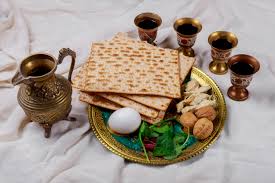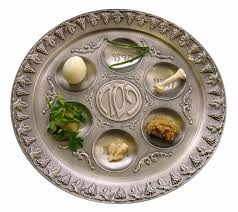 Pesach (Passover) 2021, which begins at sundown on 27 March, ending on the evening of 4 April, is a festival of freedom commemorating the Israelites’ exodus from Egypt and their transition from slavery to freedom. It is one of the most important Jewish holidays. Passover, called Pesach, gets its name from when the Israelites were enslaved in Egypt, God unleashed ten plagues on Egypt. The 10th plague was the death of every firstborn son. God told Moses to instruct Israelites to mark their doorposts with lambs’ blood so God would “pass over” their homes and let their firstborn sons live.
Pesach (Passover) 2021, which begins at sundown on 27 March, ending on the evening of 4 April, is a festival of freedom commemorating the Israelites’ exodus from Egypt and their transition from slavery to freedom. It is one of the most important Jewish holidays. Passover, called Pesach, gets its name from when the Israelites were enslaved in Egypt, God unleashed ten plagues on Egypt. The 10th plague was the death of every firstborn son. God told Moses to instruct Israelites to mark their doorposts with lambs’ blood so God would “pass over” their homes and let their firstborn sons live.
The main ritual of Passover is the seder – a festive meal that involves the re-telling of the Exodus through stories and song and the consumption of ritual foods. The seder’s rituals and other readings are outlined in the Haggadah (Passover guide). This year, the first Passover seder is on the evening of March 27, with the second Passover seder taking place on the evening of March 28.
 The typical seder has several prayers, symbols and blessings specific for Passover and includes a special seder plate. The seder plate typically holds matzah (unleavened bread), maror (bitter herbs), chazeret (bitter lettuce, often romaine), charoset (a pebbly-textured nut and fruit paste), karpas (a vegetable, often parsley, dipped in salt water, vinegar or charoset), zeroa (a roasted goat or lamb bone) and beitzah (a roasted egg).
The typical seder has several prayers, symbols and blessings specific for Passover and includes a special seder plate. The seder plate typically holds matzah (unleavened bread), maror (bitter herbs), chazeret (bitter lettuce, often romaine), charoset (a pebbly-textured nut and fruit paste), karpas (a vegetable, often parsley, dipped in salt water, vinegar or charoset), zeroa (a roasted goat or lamb bone) and beitzah (a roasted egg).
According to the Torah, the Pharaoh didn’t give Israelites enough time for their bread to rise before they had to make their escape from Egypt. As a result, during Passover, celebrants only enjoy unleavened breads to honour and remind celebrants of the rush Jews were in to flee to freedom.
